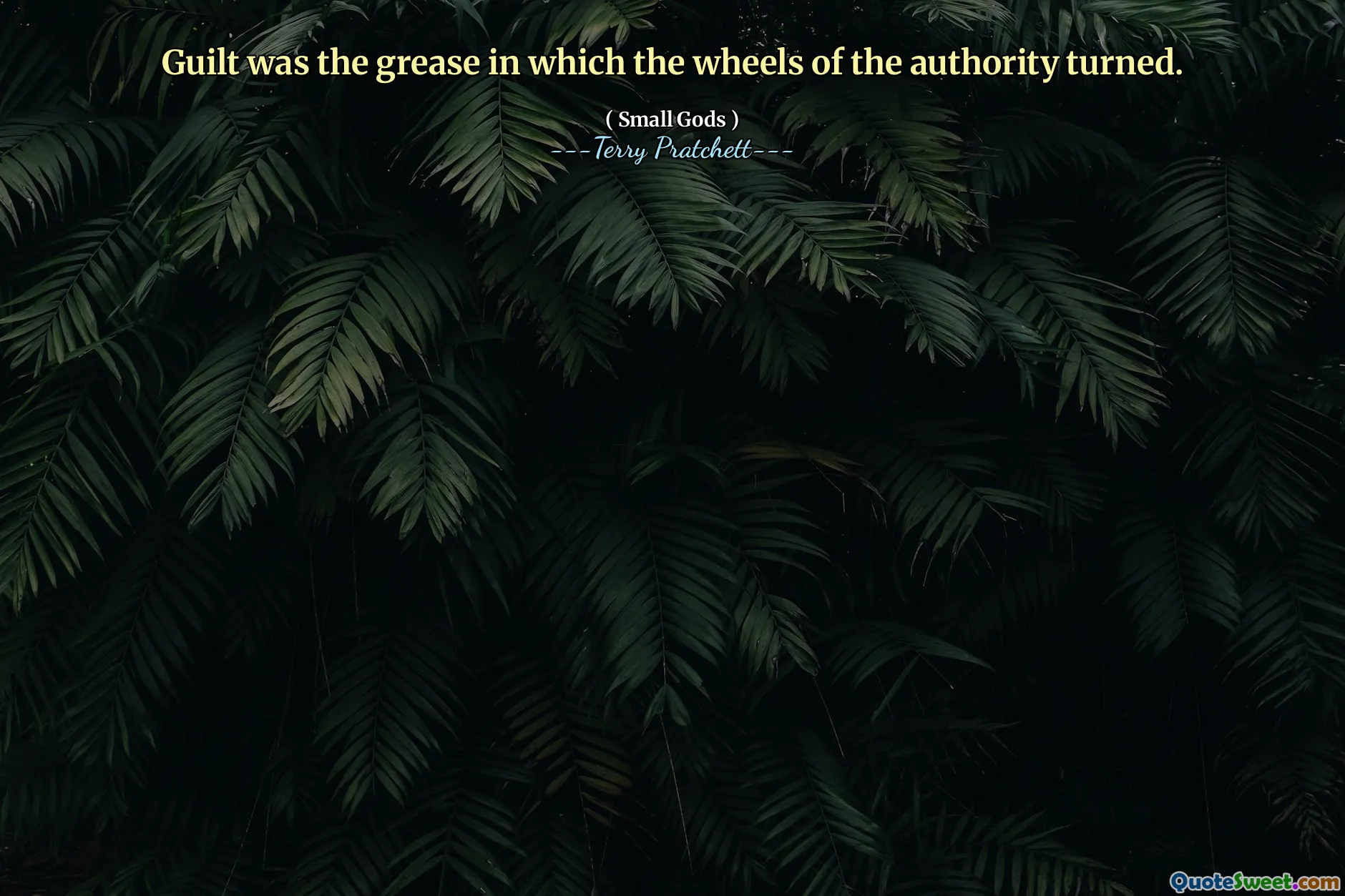
Guilt was the grease in which the wheels of the authority turned.
This quote encapsulates a profound insight into the mechanics of power and control. The metaphor suggests that guilt functions as a lubricant, enabling authority figures to operate smoothly, perhaps even unnoticed. When individuals or institutions wield power, they often rely on psychological tools like guilt to maintain obedience and suppress dissent. Guilt can be an internalized form of control, compelling people to adhere to rules, norms, or expectations out of fear of moral judgment or personal shame. This dynamic can be subtly pervasive, influencing decision-making processes and public perceptions without overt coercion. Recognizing guilt as a 'grease' in the machinery of authority prompts a reflection on the ways societal structures harness moral emotions to sustain hierarchies, rather than through overt force alone. It raises questions about the ethical implications of such manipulation and encourages vigilance regarding the subtle forces that shape behavior. Throughout history, guilt has been weaponized—from religious doctrines to political regimes—to justify actions, suppress opposition, and consolidate power. Understanding this mechanism reveals the importance of cultivating critical awareness, fostering empathy, and resisting the internalization of guilt that functions as a tool for control. Ultimately, the quote invites us to consider how emotional levers like guilt influence societal dynamics and to question the morality of systems that thrive on such psychological dependencies.






